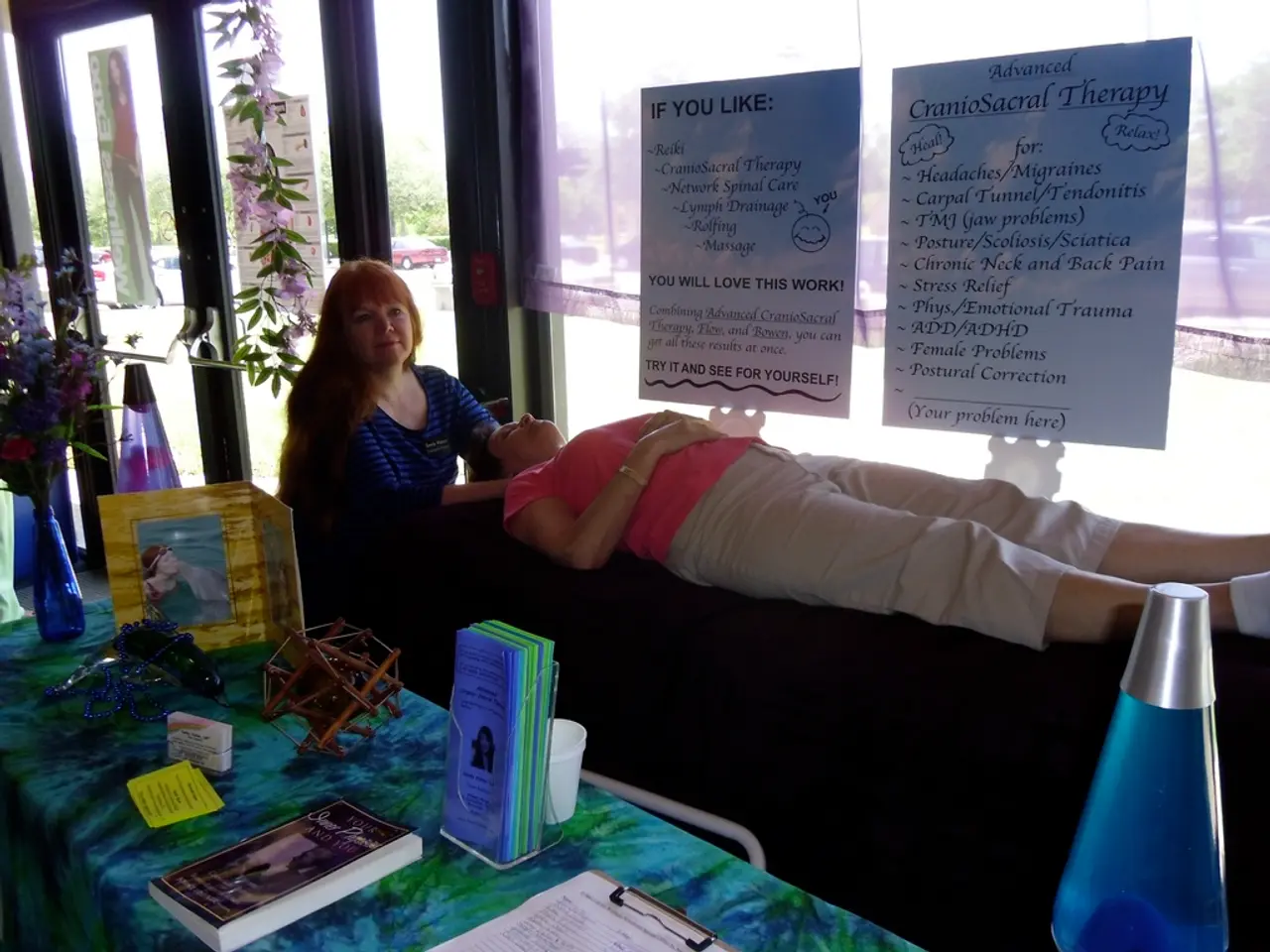Understanding the Prevalence of False Beliefs in People
In our daily lives, we often form beliefs that feel right in the moment, but may not be based on factual evidence. This article explores how anxiety and cognitive biases contribute to the formation and reinforcement of false beliefs.
Our brains use mental shortcuts, or schemas, to navigate life efficiently. However, these shortcuts can sometimes lead to incorrect beliefs. Anxiety intensifies emotional arousal, disrupting logical thinking and promoting biased information processing. Cognitive biases, such as confirmation bias and catastrophizing, further skew how individuals interpret evidence, leading them to favor information that confirms their fears and existing beliefs while dismissing contradictory facts.
Anxiety magnifies cognitive distortions like black-and-white thinking and catastrophizing, creating rigid and exaggerated negative beliefs about reality. Confirmation bias, a key cognitive bias, leads individuals to selectively seek, interpret, and remember information that supports preexisting beliefs. When combined with anxiety, this bias can become stronger, causing false beliefs to persist and even intensify over time.
Emotional arousal from anxiety interferes with critical thinking and decision-making by impairing functions of the prefrontal cortex responsible for careful reasoning. This makes people more reliant on mental shortcuts, which are vulnerable to bias and error. The spotlight effect, common in social anxiety, exaggerates the perception that others are scrutinizing one’s behavior, reinforcing distorted social fears and negative beliefs about oneself.
Together, anxiety heightens emotional reactivity and vulnerability to cognitive biases, while those biases systematically distort information processing. This feedback loop strengthens inaccurate beliefs, making them resistant to disconfirmation and reinforcing anxiety itself.
Developing metacognitive awareness — reflecting on how one thinks and recognizing biases — is crucial in mitigating these effects and correcting false beliefs. Verbalizing a belief from an outside perspective can help one see flaws in an anxious thought more easily. Motivated reasoning, the tendency to interpret information in ways that protect one's self-image, can be countered by a gentle and curious approach to challenging beliefs.
If a false or distressing belief dominates one's life, professional help can make a difference, especially when the belief causes significant distress, interferes with daily life, or cannot be broken without support. It's important to remember that believing something untrue is a common human experience, especially when the brain seeks certainty under stress.
In the digital age, social media intensifies the spread of misinformation through echo chambers, where algorithms show us content similar to what we've already liked. Strong emotions, particularly anxiety, can make feelings seem like facts. For someone with anxiety about acceptance, group agreement can feel more important than evidence. Group identity and peer pressure can make false beliefs feel safe, especially when "everyone" seems to agree.
However, it's crucial to remember that challenging a belief doesn't mean harshly telling oneself that it's stupid or simply trying to eliminate the thought. Instead, the gentler and more curious one is with their beliefs, the more effectively they can shift them.
References:
[1] Freeman, D., & Simon, O. (2013). Cognitive behaviour therapy for psychosis. The British Journal of Psychiatry, 203(5), 324-330.
[2] Kahneman, D. (2011). Thinking, Fast and Slow. Farrar, Straus and Giroux.
[3] Clark, D. M., & Wells, A. (1995). The spotlight effect in social anxiety: Implications for the self-presentation model. Behaviour Research and Therapy, 33(7), 673-685.
[4] Metacognitive Therapy for Anxiety Disorders (2018). Oxford University Press.
[5] Westen, D., & Blagov, P. (2007). The Neurobiology of Psychotherapy: Healing the Social Brain. Guilford Press.
- Anxiety and cognitive biases can lead our brains to form and reinforce false beliefs, relying on mental shortcuts instead of factual evidence.
- The prefrontal cortex, responsible for careful reasoning, is impaired by emotional arousal from anxiety, making us more susceptible to bias and error.
- Cognitive biases like confirmation bias and catastrophizing distort information processing, reinforcing rigid and exaggerated negative beliefs.
- Metacognitive awareness, or reflecting on our thoughts and recognizing biases, is essential to mitigate these effects and correct false beliefs.
- Professional therapy can be beneficial when a false or distressing belief significantly affects an individual's life, causing distress or interfering with daily activities.
- In the digital age, social media can amplify the spread of misinformation and false beliefs, especially when emotions are involved.
- Group identity and peer pressure can make false beliefs seem safe, despite contradictory evidence, due to the desire for acceptance and group agreement.
- When challenging a belief, it's important to approach it gently and curiously, rather than harshly telling oneself it's stupid or trying to eliminate the thought.
- Research in psychology, health-and-wellness, and mental health suggests that understanding the connections between anxiety, cognitive biases, and false beliefs can lead to more effective self-care and personal growth.
- The neurobiology of psychotherapy can help us understand how our nervous system and brain are affected by mental disorders like anxiety, depression, and memory problems, and how therapy can help improve these conditions.
- Emotions like anxiety and feelings of low self-worth can influence our perceptions and relationships, impacting our overall mental health and well-being, and making it crucial to prioritize mental health in everyday life.




